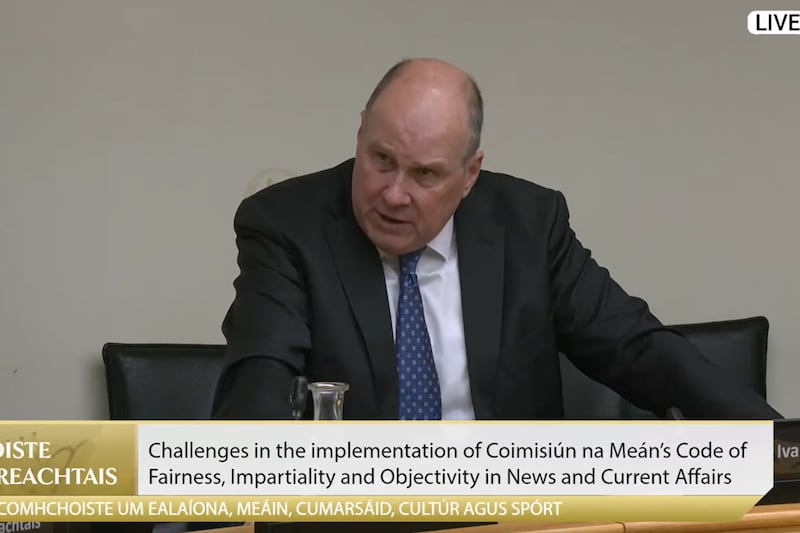One moment you are living a relatively stable life, Nealo is saying, talking slowly and quietly, as if he can barely believe what he is saying – “you’re in a relationship, you have a baby, you have a job” – and then you fast-forward a year “and you’re living as a stranger in someone’s house with a cot beside your bed. It’s mad how one shift can snowball into lots of things. But I think you have to go through a lot of shite sometimes to come out stronger on the other side. I feel like that’s where I am now.”
The Dublin rapper, aka Neal Keating, has made new music “from those bits – or the basement, as I call it”. The resulting album, November Medicine, has been ready for more than a year, but he has been waiting for the right moment to release it.
We are in a north Dublin coffee shop so chilled we can see our breath in the air. We keep our coats on and warm our fingers on the cups as we talk about his life and about the challenges of being an independent artist. Making the songs is the easy bit, he says, the fun thing. What is not fun is “the marketing and the PR, the artwork, getting all the stuff together for an album. I don’t have a manager, I don’t have a record label, and in Ireland we don’t have the infrastructure, really,” he explains.
“Record labels aren’t going to take a gamble on me, because the money’s not going to be made any more. It’s just not around. There’s nothing in streaming, and there isn’t that much even in gigs, because I can only play Dublin once a year, pretty much.”
RM Block
As for his personal upheavals, Nealo is not shirking responsibility for what has happened. He had to quit partying, he says, because he had become tired of “covering up a lot of my sadness by going out on the weekends, looking forward to the next session”.
“In our line of work that happens all the time,” he says. “I remember when festivals came back, not last year but the year before, I think I did several festivals and at each one there was a session probably from Friday to Sunday, or Saturday to Monday, and then on the Monday you’re a shell. And then you have to go back and be a dad, which is not easy.”
Antidepressants helped, he says. “They were good for me, but they’re more a Band-Aid for a hard time. They’ll get you through, but they’ll only get you to a certain place from where you have to do the rest of the work yourself.”
The best self-medication for him, Nealo says, is attempting to resolve his issues by working out – “I do it for an hour every day, religiously, a mix of meditation and yoga with strength exercises and breath work” – and the healing power of music.
November Medicine, which arrives three years after his debut, All the Leaves Are Falling, continues his autumnal leanings with a narrative of admitting and addressing vulnerabilities. The songs, absorbing blends of hip hop, soul, jazz, R&B and spoken word, were formed following the trauma of separation. Writing music, Nealo says, was his only solace at that time. “I just remember sitting on my own in the room upstairs. I was telling myself that I have nothing else right now but I have the music and the writing, and it sounds good.”
At several points on the album Nealo uses confessional voice notes to contextualise the autobiographical storylines of the songs. The honesty is potent and often profound. “I changed a lot of those notes over time, and placed them correctly. Sometimes there’s a tendency to be self-indulgent with them, although in a way they’re quite lighthearted, because the songs are so weighty.”

Despite the personal story that unfolds, there is an inclusiveness to the songs that connects with emotional frailty. It is what makes Nealo create music, he says. “With that vulnerability you have to be careful about not hurting other people. I think where people get hurt is they say, ‘You did this, you did that, you hurt me this way.’
“For some people and their relationships, that swings one way or the other. For mine it was mostly me and a lot of stuff that I did. I was self-involved. Music can be a very selfish game. You have to really focus on yourself, and so there isn’t much time left for people in your life. And when you have a baby, as well ... That’s why quitting drinking and stuff has been so good, because I’m so present with my son now.”
The lifeline continues to be extended. Sometimes it can be a sturdy rope; at other times it can feel like more of a thread. Even so, music and the friends that help him shape it will always be the hooks for Nealo to hold on to. It may be a challenge to “break through the noise”, but he believes that November Medicine is merely “the beginning of the next cycle”.
“After it’s released I’ll do a tour, and then next year I’ll try to play as many festivals as I can. That’s when all the hard work starts to pay off,” he says.
November Medicine is released on Friday, November 17th; Nealo is launching it that night with a gig at Whelan’s in Dublin





















